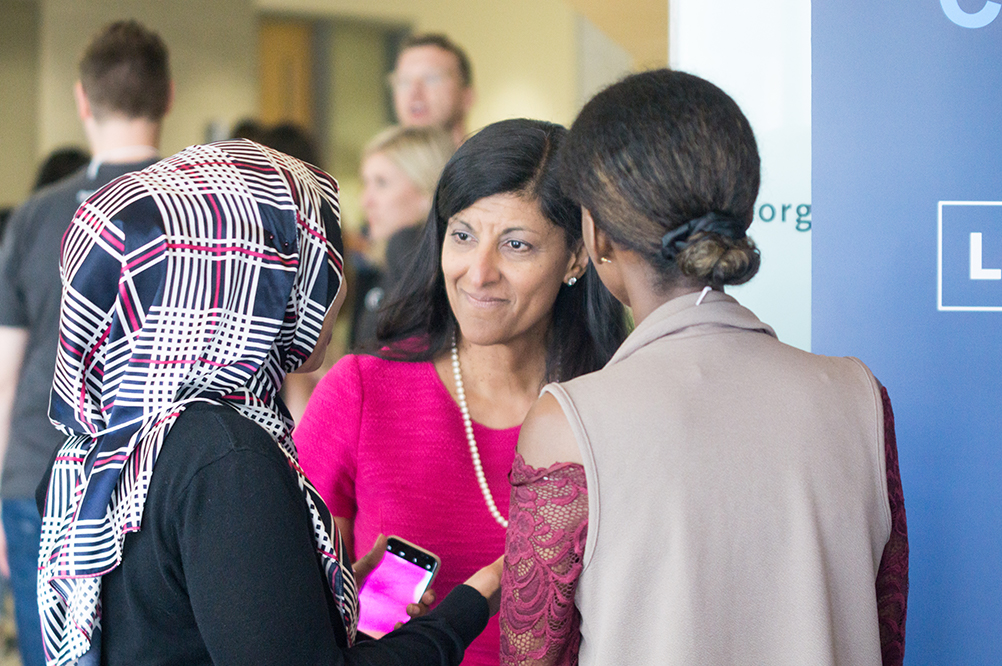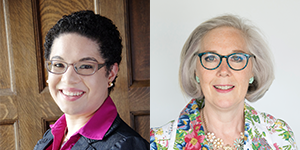
10 Questions with Zabeen Hirji, Future of Work Executive Advisor at Deloitte
January 19, 2021
Why we need to share our ideas about connecting career development to social justice
January 19, 2021To be an ally, we must first know who we are and what shaped us
Natasha Caverley and Kathy Offet-Gartner
“I tell my students, ‘When you get these jobs that you have been so brilliantly trained for, just remember that your real job is that if you are free, you need to free somebody else. If you have some power, then your job is to empower somebody else.” Toni Morrison (2013)

Self (social) location
My name is Natasha Caverley. I am a multiracial Canadian (of Algonquin, Jamaican and Irish heritage) who resides on the unceded traditional territory of the W̱SÁNEĆ people on the Saanich Peninsula in British Columbia, Canada. I am a cis-gender educated woman who endeavours to seamlessly live and work as a “boundary walker” – walking softly within and between diverse cultures as a helper, recognizing that allyship is a source of strength that can aid in uniting voices and populations across cultures and the lifespan.
My name is Kathy Offet-Gartner. I am a white, cis-gender, educated woman, who is privileged to be a mother and nana/Kukom. I have a home, a stable job and an occupation that I love. I live and work on the hereditary homelands of the Niitsitapi (the Blackfoot Confederacy: Siksika, Piikani, Kainai), Îyârhe Nakoda and Tsuut’ina Nations, which is home to the Métis Nation of Alberta, Region III. As a counsellor, I have worked with and alongside BIPOC clients for nearly four decades. I am aware of the many privileges that I have – both earned and bestowed. I am also cognizant of the power that these many privileges accord me and strive to use them as an ally. Allyship is not mine to proclaim, it is accorded to me by those I work and interact with, like Dr. Natasha Caverley.
Don’t miss Part II of this article: Allyship terms, tips and tools to support career development work
In earlier editions of Careering magazine, Jodi Tingling (2020) shared suggestions on how to assist BIPOC clients. It is an important read and sets an excellent stage for this article. Likewise, Lindsay Purchase (2020) wrote – in the Tips and Training section of CERIC’s CareerWise website – a wonderful piece on including social justice in our career development practices. Together, these two seminal pieces provide much of the preamble to this article. Both articles remind us of the oppression and “ism’s” BIPOC clients face on a daily basis – a weight they should not have to bear on their own, but far too often do. To assist BIPOC clients and individuals and groups who face oppression, allies are needed who can and will use their power and privilege(s) to challenge the status quo (e.g. the colleague who makes an offhand discriminatory remark; the policy that privileges one individual or group over another).
What is allyship?
Allyship requires listening, seeing, reflecting, learning about, appreciating and respecting all aspects of cultures and identities. This begins with each of us examining our own cultural identities and influences: where we come from; how we got to where we are; at whose expense we arrived; our values, beliefs, principles, biases and self (social) locations. To be an ally, we must first know who we are, and what and who shaped us, addressing the good, the bad and the ugly we find, so that we can acknowledge all of oneself. Understanding oneself and the historical and present-day influences on who we have become better prepares us to accept the “other” and their realities, influences and truths. Even though we might not be able to relate to another person’s perspective, it is vital to recognize their experiences of racism and oppression are real, hurtful and far too common.
Engaging in allyship
Allyship requires action and using one’s power and privileges to confront injustice and oppression. It is not good enough to call oneself an ally; one must be an ally. In Dare to Lead (2018), Brené Brown shares that if we want to learn about race and oppression, we must first listen. Brown also states that difficult conversations take courage and reminds us that silence is never courageous. In Strong Helpers’ Teachings: The Value of Indigenous Knowledge in the Helping Professions, Cyndy Baskin (2016) echoes the same sentiment. Inspired by the works of Brown (2018) and Baskin (2016), and many others, allyship is about …
- Examining your own social location, privilege and worldview: Be aware of your biases, values and cultural norms, and how these shape your worldview. Recognize that worldviews influence how we self–locate and how we locate others. Know the privileges and power you hold.
- Expanding your knowledge: Expand your knowledge about ways of life that are different from your social location. Learn about the impacts of oppression, racism, discrimination and stereotyping. Never assume that an individual and/or group feels oppressed. Hence, never speak for an individual and/or group’s lived experiences and never take credit for what is not one’s own (e.g. cultural appropriation). Ask, listen and learn.
- Using power and privilege effectively: Endeavour to live and work in the service of others; choose carefully how to use what powers and privileges that we have in a “good way.” This includes a willingness to share power and privileges with individuals who do not possess them. Ensure actions are always focused on assisting individuals whose voices are silenced, and not for personal gain. Do not expect praise for doing what is right.
- Honouring BIPOC ways of healing and helping: Recognize differences between BIPOC helping and mainstream helping. Use a strengths-based approach that recognizes individuals and groups of people have competencies, including resilience, which they can draw on to identify and address their own concerns.
- Being open to receiving feedback – actively listening and learning anew: Examine blind spots and check common assumptions. Ensure there are congruent and mutually held expectations within the helping relationship. Do not dismiss or de-emphasize social and political systems that affect clients’ challenges and needs. Actively seek feedback.
- Engaging in anti-oppressive practice: Engage in activism on a structural and system-wide level. This includes calling out oppressive practices and language even if there are personal and professional consequences. Challenge ideas such as the “colour blind” myth (ignoring and failing to take culture and diversity into account). Choose to be uncomfortable rather than silently complacent. Surround yourself with like-minded people who will assist in the fight for justice, harmony and equity.
- Maintaining a learner’s stance and curiosity: Be humble; own your errors and faux pas. We cannot know everything we need to, so use mistakes as learning opportunities.
Angela Davis (n.d) states, “In a racist society, it is not enough to be non-racist, we must be anti-racist.” Drawing from this quote, allyship is about transforming awareness and words into tangible actions. From recognizing one’s own social location and privilege to challenging system-wide oppressive, racist and colonial laws, policies and practices, allyship is an ethical responsibility as citizens and professionals.
Dr. Natasha Caverley is the President of Turtle Island Consulting Services Inc. She holds an MEd in Counselling Psychology and a PhD in Organizational Studies from the University of Victoria.
Dr. Kathy Offet-Gartner is a Registered Psychologist whose counselling research, teaching and practice focuses on strengths-based, culturally informed career-life development.
References
Baskin, C. (2016). Strong Helpers’ Teachings: The Value of Indigenous Knowledge in the Helping Professions (2nd ed). Toronto, ON: Canadian Scholars’ Press.
Brown, B. (2018). Dare to Lead: Brave Work. Tough Conversations. Whole Hearts. New York, Random House.
Davis, A. (n.d.). Angela Y. Davis – Quotes – Quotable Quote. goodreads.com/quotes/8731136-in-a-racist-society-it-is-not-enough-to-be
Morrison, T. (2003, November). The Truest Eye: On The Greater Good. O, The Oprah Magazine, 4.
Purchase, L. (2020). Tips and Training: Resources on Career Development and Social Justice (Part 2). Careerwise. careerwise.ceric.ca/2020/10/01/resources-on-career-development-and-social-justice-part-2/
Tingling, J. (2020). Supporting the Careers of Individuals who are Black, Indigenous, and People of Colour. Careering. ceric.ca/2020/10/supporting-the-careers-of-individuals-who-are-black-indigenous-and-people-of-colour/

